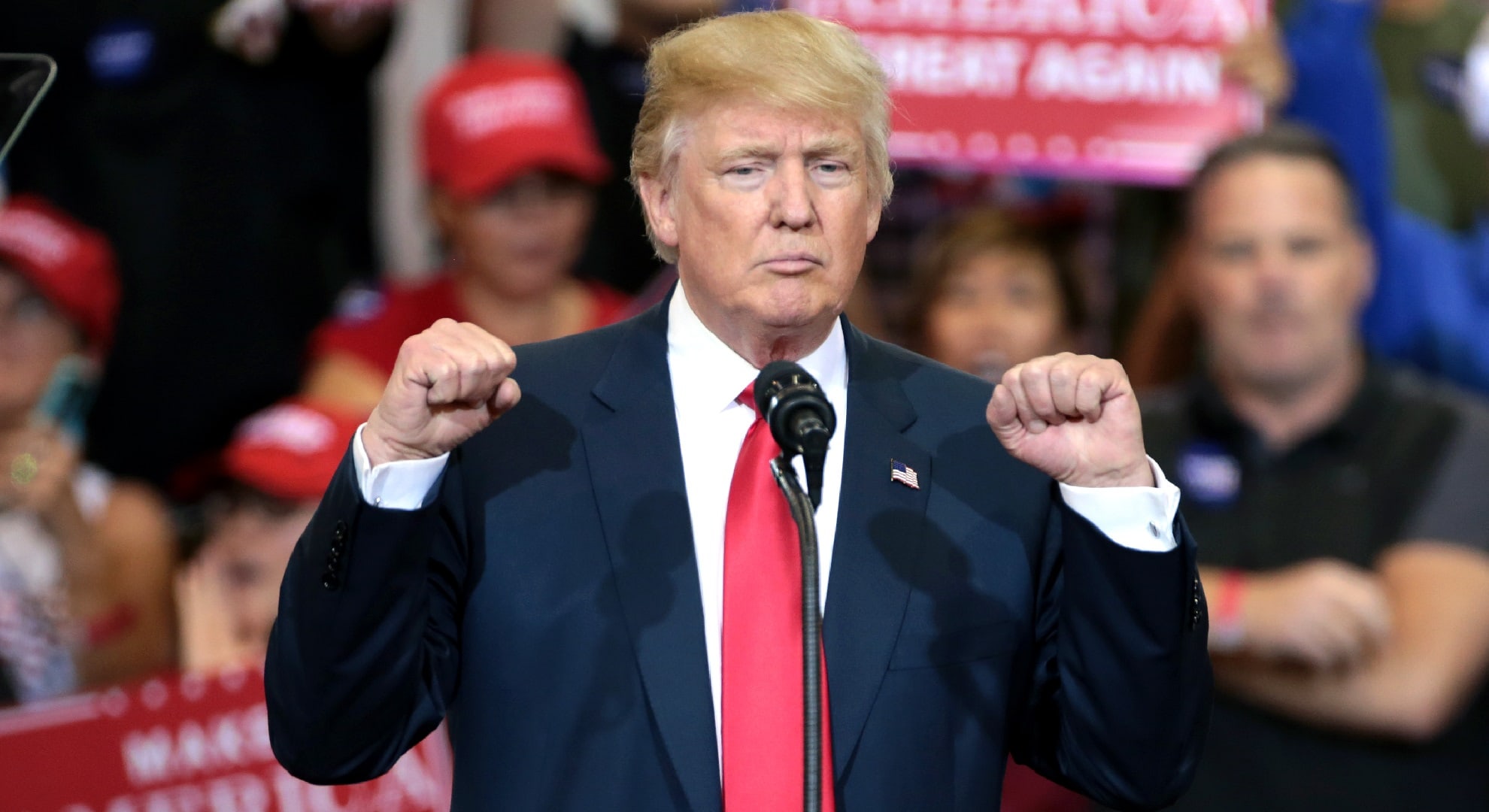Donald J. Trump campaigned in 2016 as an America First candidate who would prioritize U.S. economic and domestic policies over the “wasteful” foreign policy that had defined the United States since the end of the Cold War. In fact, the strongest criticism about Trump was that he was completely out of his depth in foreign policy, which was a key domain for a president.
Yet once in power, Trump proved to be a deft practitioner of U.S. foreign policy.
Trump: the Best Foreign Policy President In Decades
While campaigning, Trump was consistent in his calls to restore America’s ailing military power. As president, he did more for the U.S. military’s readiness than his predecessor ever had done. Since entering office, Trump’s successor, President Joe Biden, has spent the last three years draining and straining that force—while forcing divisive, radical social policies on the once-more ailing force.
In the unlikely event that the forty-fifth president is yet again elected in 2024, his foreign policy and military policy will be like Teddy Roosevelt’s: We will walk quietly (kind of) and carry a massive stick.
This was the essence of the poorly defined Trump Doctrine. Trump used the unpredictability of his personality that enraged independent voters and his political rivals at home to his advantage on the world stage.
He embraced the old Richard Nixon “Madman” theory, putting the fear into world leaders both friendly and otherwise that he might go postal over any sleight.
With that unpredictability, Trump kept everyone off balance and unsure of their next moves. This gave the 45th president the maneuvering room he needed to extract concessions from the mad mullahs in Iran, to make a temporary peace (that Biden broke) with North Korea, to wage a trade war on China, and to keep hostilities frozen with Russia over Ukraine.
At the same time, Trump was the first president in decades to get recalcitrant NATO partners to invest more in their collective defense, rather than simply relying on America.
There were a series of speeches that Trump gave that perfectly encapsulated his foreign policy strategy. The first was his brilliant talk in Riyadh, Saudi Arabia, that was the progenesis of what became known as the “Abraham Accords.” The second was his beautiful speech in Warsaw, Poland.
From Total War to Balance of Power
Trump’s entire concept in foreign policy was to scare potential enemies and empower friendlier countries like Poland, Israel, or Saudi Arabia, to do our bidding while the United States became more of an offshore balancer. In so doing, the U.S. could rebuild its dying domestic infrastructure, which had been ignored for years.
Whether he fully understood it or not, Trump took an almost Chinese view of international competition. Like most Chinese leaders, the former president believed that the competitive base for his country had to be enhanced to better challenge the greatest threat the United States has faced since the Cold War: the rise of communist China.
The Chinese believe that for a nation to be competitive globally, it needs more than just military power. It needs Comprehensive National Power. The Chinese leadership defines CNP basically as the “degree of ability to mobilize and utilize strategic resources of a country to realize national objectives.”
A country needs to have modern infrastructure, a well-trained human capital base, a robust economy, and a strong political order — as well as a powerful, modern military — to compete. Trump’s view of foreign policy was a vital change from the neoconservative foreign policy that dominated the George W. Bush years. It was also distinct from the liberal internationalism that pervaded Bill Clinton’s presidency.
Trump’s approach was much more akin to the realist school of foreign policy. He recognized that the America he had inherited from his predecessors was relatively weak. Its economy was just getting by, and its people were not doing well.
Trump understood that if he didn’t buy his country time away from incessant conflicts, whatever resources the nation had left would be drained and wasted in those conflicts.
At the same time, Trump recognized that he couldn’t just turn inward.
Trump Enhances America’s Comprehensive National Power
Trump and his team crafted a calibrated strategy that would preserve U.S. interests globally while working to contain real threats (such as China and Iran) by empowering local allies and offering incentives to rivals who might be persuaded to avoid a costly war with the U.S. (North Korea and even Russia).
Trump’s program was controversial because most purported experts in Washington, D.C. were poorly educated and didn’t understand that constant war mania did nothing to enhance either U.S. power or the well-being of the American people. Worst still, those self-styled Mandarins of U.S. foreign policy didn’t care about their own people.
Since he took office in January 2021, President Joe Biden has dismantled the Abraham Accords, started a massive war with Russia over Ukraine, abandoned Afghanistan to Iran, Russia, and China (as well as the Taliban), helped to overthrow the pro-American government in Brazil, restarted hostilities with nuclear-arming North Korea, and empowered China. America’s military is at its breaking point because of these feckless policies.
Should Trump be reelected in 2024, one can anticipate that he will both rehabilitate the US military and resort to his judicious foreign policy of crafting a working balance of power that favors US interests globally while refocusing the government’s attention on helping the American people rather than foreigners.
MORE: Could Donald Trump Be Disqualified from Becoming President Again?
MORE: Could Donald Trump Quit the GOP?
A 19FortyFive Senior Editor, Brandon J. Weichert is a former Congressional staffer and geopolitical analyst who is a contributor at The Washington Times, as well as at American Greatness and the Asia Times. He is the author of Winning Space: How America Remains a Superpower (Republic Book Publishers), Biohacked: China’s Race to Control Life (May 16), and The Shadow War: Iran’s Quest for Supremacy (July 23). Weichert can be followed via Twitter @WeTheBrandon.

